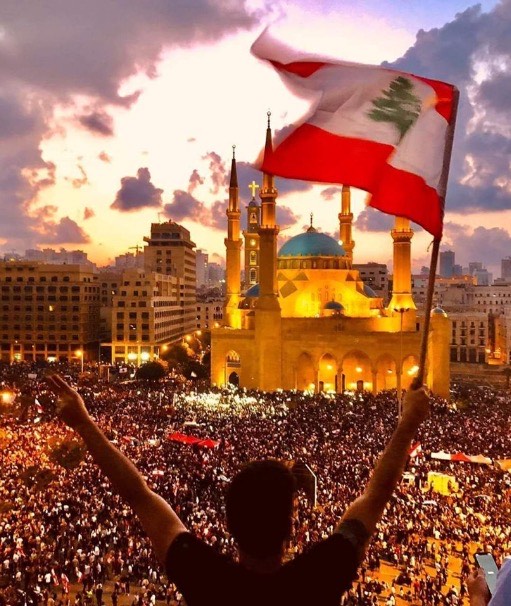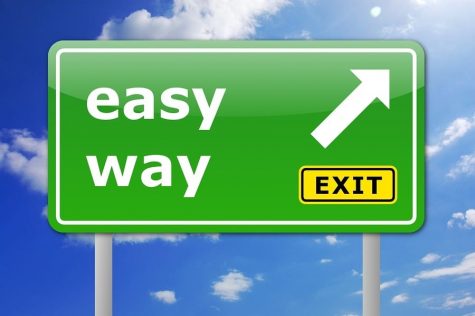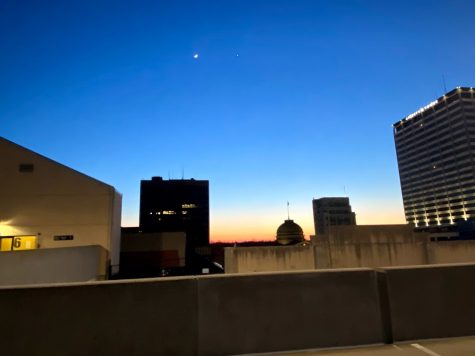Lebanon Protests for Freedom–It’s Time to Listen
Letter To The Editor
Although I was born in the United States, my whole family is from Lebanon, a small Middle Eastern country sandwiched between Israel and Syria. My family and I return frequently, visiting friends and family when we get the chance. I’ve always considered my Lebanese heritage to be a big part of who I am, and I’m always more than happy to talk about the many amazing things Lebanon has to offer. But despite my national pride, never have I been more proud to call myself Lebanese than since the recent protests began.
Although rich with culture and full of gorgeous scenery, Lebanon has its fair share of problems, most of which stemming from the government. Government corruption is rampant in Lebanon, with taxpayer money going straight to many politicians’ pockets. Out of 137 different countries, the Global Competitiveness Report ranked Lebanon as 134th in quality of electricity supply and 130th in overall infrastructure. Pollution and waste management have been a widespread issue since 2015. Lebanon hosts an estimated 1.5 million Syrian refugees, a number which is only expected to rise in the following months. Furthermore, wildfires swept across Lebanese forests in early October with little government action to counter them. Lebanon has the third highest debt to GDP ratio in the world and is in the middle of a financial crisis which could even trigger an economic collapse in the near future. The Ministry of Labor announced a 25% unemployment rate, equal to that of the Great Depression in America. For younger people, unemployment is even worse, with nearly 37% of people under the age of 35 unemployed. For quite some time, the people had been looking to the government to see what measures they would take in order to combat the issue, but to many, the government’s response was a slap in the face. So when the government proposed a new bill that would tax text messages and phone calls over popular messaging apps such as WhatsApp, like a modern day Stamp Act, the people were understandably outraged.
On October 17th, spontaneous protests against the new tax swept across the nation. “How was a texting tax going to solve our economic crisis?” they wondered. However, only two days later, the protests had evolved into something much larger. A total of over a million gathered in the streets in every major city protesting not just the tax, but the politicians who had got Lebanon into such a dire situation previously. The aforementioned issues in Lebanon had existed for some time, but the politicians had taken advantage of the sectarianism not only baked into the political system but dividing the people as well, using sectarian divides to prevent different religious groups from unifying against them. However, the recent protests have been a whole different story. Those who had been previously divided among the principal religious groups (Sunni, Shia, and Christian) found themselves united in protest against the government. In fact, my mother, Ghada Bualuan, participated in the protests during her recent two week trip to Lebanon. In speaking of her experience in the protests, she said “the protests were so spontaneous… people from all regions of Lebanon, young and old, men and women, are participating in the protests. They all are united… all holding one common flag: the Lebanese flag, not some other political party or sectarian group’s flag.”
So far, some progress has been made. When the demonstrations first spread across the country, the government quickly retracted the WhatsApp tax, but it was too late. After a few days, Saad Hariri, Lebanon’s prime minister at the time, proposed a series of sweeping reforms, including tax cuts, development of infrastructure, reassessment of government salaries, and an overhaul of the electricity sector. However, for many, this was not enough. The Lebanese people do not want new policies; they want new people in power. Not even two weeks after the first demonstrations, Hariri, along with the rest of his cabinet, resigned, but the protests continued. As of the writing of this piece, the protests have raged on for nearly a month with no end in the foreseeable future. The people will not rest until everyone is out of power.
However, many worry that the cry for freedom is falling on deaf ears. Although international news sources have covered the topic, the American public remains largely unphased and unaware. Of the seventeen potential democratic candidates, only one of them (Elizabeth Warren) has mentioned the political situation in Lebanon. Even then, it was an offhand tweet most overlooked in their feed. As for those currently in power, Donald Trump has yet to publicly comment on Lebanon: both on Twitter and in person. On November 2nd, however, a state department representative affirmed support for the Lebanese Army, or the counterrevolutionaries headed by the government.
Like Hong Kong, Chile, Iraq, and many others, Lebanon is joining the growing number of countries standing up for their rights and denouncing their governments. Now, more than ever, we need international recognition and support. I am very proud to be Lebanese, and prouder still to watch them stand up for themselves and unite for a common cause. But without the international community by our side, I fear our voices will not be heard. Only time will tell what fate awaits Lebanon. Who knows? In a few years, October 17th could be Lebanon’s new Independence Day.
The Tower welcomes Letters to the Editor on any topic with any view. They can be submitted under the “Submit a Letter” tab.
Your donation will support the student journalists of The Tower and John Adams High School. Your contribution will allow us to purchase equipment and cover our annual website hosting costs.







